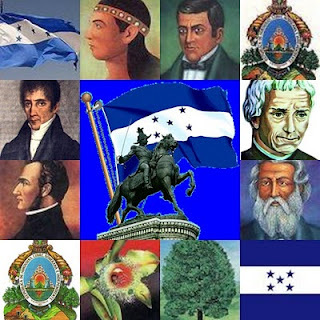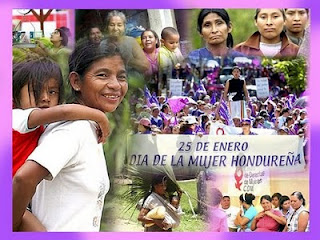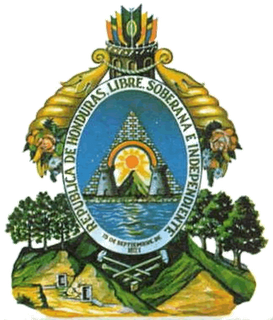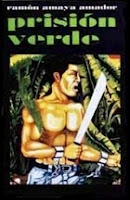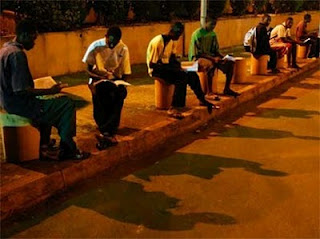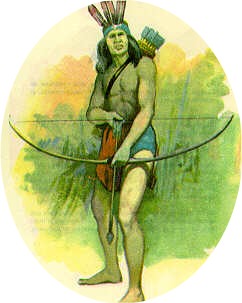This novel is certainly one of the most popular in Honduras, not for the perfection of the author’s literary art, but for his courageous denunciation of Honduran workers exploitation by the U.S. banana companies.
The author, Ramon Amaya Amador, worked for some time in the banana plantations sprinkling poison. When he practiced journalism he denounced the workers exploitation he witnessed by first hand, and for that reason he won the antipathy of the dictatorial regime of Tiburcio Carias Andino —a tyrant who defended the interests of the banana companies— so he had to leave the country in exile.
Ramon Amaya Amador used his banana field experience in the writing of this novel. The author’s purpose, rather than making a literary contribution, was to create a political consciousness able to produce social changes, improving the living conditions of Honduran workers.
According to writer Armando Garcia, the book Prision Verde “has been the most persecuted in the country. For a long time it was an evidentiary exhibit for imprisonment. The old men of my town still lower their voices to the mere mention of its name. Many times it was buried in the solitude of the yards after the Coup d’Etat.” (Armando Garcia, 1997).
Banana fields are described in the novel as a “green prison” because of the mysterious attraction they exerted on workers who live there, who despite being exploited and abused, felt the urge to stay working in the plantations despite all difficulties.
Amaya Amador began his story in the atmosphere of one of the companies’ offices, in which a “gringo boss” —Mr. Still— was trying to convince the landowner Luncho Lopez to sell his land to the banana company. In his attempt he was helped by two Lopez’s friends: Sierra and Cantillano, who had already sold their land, and tried to influence their friend to do the same, but he refused stubbornly.
After the meeting with the landlords, enters Mr. Martin Samayoa looking like homeless after wasting the money given to him by the Company for his land, hoping that Mr. Still would give him a job as a foreman, but Still despised him and sent him to find work as a laborer. Discouraged by the snub and with no money, Samayoa was lucky to meet worker Maximo Lujan, who took him to live in his house —a miserable crowded place where he lived with another plantation workers— and also got him a job sprinkling poison.
The foreman of the company, which gave the job to Samayoa, and for which Maximo Lujan also worked, was a Honduran who spoke with gringo accent, because his servility was so pathetic he wanted to imitate his gringo bosses, attitude which earned him the contempt and ridicule of those who worked for him, although for obvious reasons they did not dare to tell him that in his face.
In each book’s episode there is always some injustice done by the Company that causes outrage among plantation workers. But not everyone has the same awareness of their situation, some people have become accustomed to oppression, they see it as something normal in the world and do not complain. But Maximo Lujan’s group is becoming increasingly socially conscious. Contrary to proponents of indiscriminate violence as a response to oppression —like old Lucio Pardo- Lujan proposes that working class’ victory lies in its ability to organize, and that until they have created their own political party and brought down the dictatorship there cannot be a substantial improvement in the lives of plantation workers.
Lujan reads worker newspapers, he reads them out loud in the social gatherings at night with his comrades, those newspapers confirm his revolutionary beliefs and offer him new perspectives. The death of a comrade —Don Braulio— who also sprinkled venom— caused indignation to workers, it made them think. Facing the dead body of his comrade, who died from tuberculosis in the middle of work, Lujan says, “This man was one of the many deceived and exploited. He put his life force in the plantations, first with the desire to make a fortune and then by the need to earn a crust. He was eaten by the banana plantation! He died standing with the hose in his hand, serving the foreign masters.”
On traditional political parties: the National Party and the Liberal Party, Lujan says, “They have the same essence: oligarchy; they suffer the same disease: demagogy, and they serve the same master: the Banana Companies” … “In politics we need something different than traditional caudillismo, different than cronyism, than the paternalism of personages. We need to translate the aspirations of the working masses into a political ideal, and we need to translate this ideal into a real workers’ party, a real revolutionary party. We must not believe in idol-men. Our history is full of their promises.”
Women are also victims of the banana companies’ capitalist oppression. Poverty forces many female plantation workers to engage in prostitution. Gringotized Captain Benitez rapes and impregnates Catuca Pardo —a Lujan’s group’ woman— abandoning the resultant baby. A gringo boss —Mr. Jones— falls in love for Juana —another woman of Lujan’s group— but as she has a husband she rejects his advances. Given this situation, another gringo boss decides to send someone to
kill the husband, clearing the way for his comrade. After time, Juana makes a deal of regular sex with the gringo in love, in exchange for some money and a job as a poison sprinkler. She did this in order to help Catuca’s son. Juana never knew who killed her husband. Americanized Captain Benitez was also involved in this murder.
Estanio Parraga —the banana company lawyer— convinces landowner Luncho Lopez to work as a banana independent producer, coming to terms with the company. Luncho Lopez is excited with his new role as a banana entrepreneur, but the company does not give him the agreed supplies and this causes him to fall into ruin. At that point he realizes the company deceived him to make him fall into bankruptcy and force him to sell his property. But Lopez still stubbornly refuses to sell. Given this negative, the National Party’s government intervenes and threatens to take away his land by force. Luncho Lopez dies of sadness, because he had been a great defender of the nationalist dictatorship. In that moment he realized the stateless attitude of government authorities.
The other landowners, Cantillano and Sierra, also end up in ruin after being cheated in business by Estanio Parraga, who besides being the company’s lawyer was also a representative in Congress. Sierra and Cantillano ended up looking for jobs as laborers in the company, sharing the same misfortune that first felt upon Martin Samayoa.
Workers’ situation worsened with the rising prices of grocery store products, owned by the same banana company. The government collects taxes on workers in order to build schools and hospitals, yet they do not receive any of these services. And they are not allowed to protest and form unions.
When a crane driver died in an accident, a gringo boss gets mad at the deceased for spoiling the machine worth thousands of dollars, shouting angrily: “I’d rather have a hundred of these bastards dead!”. This causes great indignation to workers, who are fed up with humiliations, so they decide to strike. And they appoint Maximum Lujan as director of the strike, who accepts the charge,
even when he thinks the strike has been made prematurely.
Lujan was right. What happens next confirms it. The strike was quickly suppressed by the military. Lujan’s comrades are taken as prisoners, and he is killed and buried beneath a banana tree.
The old Lucio Pardo, in revenge for Lujan’s death —to whom he loved as his own kid— produced the derailment of a rail-car with important company people on board: a gringo boss —Mr. Foxer— two foremen: Encarnación Benítez and Carlos Palomo, and the Colonel who killed Lujan. They all die in the accident.
The gringo bosses wanted to give and exemplary punishment, and used torture to make Lucio and his friends confess, to no avail. But the ex-landowners, Sierra and Cantillano, are not so strong, they confess under torture a crime they didn’t commit. They were about to kill Sierra and Cantillano when Lucio Pardo, in order to free the innocent, appears before their torturers to confess he was the author of the attack. Lucio Pardo dies hanged by the military.
The novel closes with the friends remembering Maximo Lujan and his legacy: “The green prison is not only darkness. Maximo lit here the first revolutionary torch. Hundreds of siblings are now responsible for keeping it upright.”
Buy the book Prision Verde here on Amazon.
